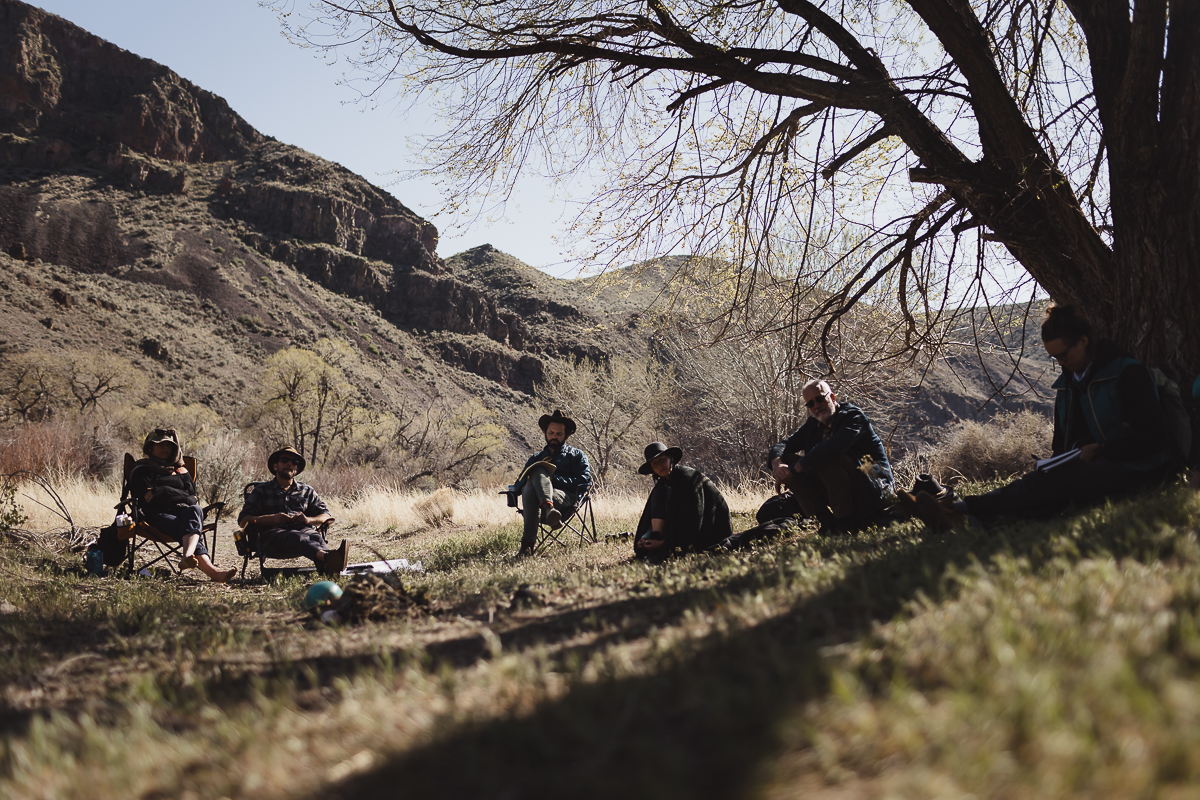
A child holds her first fish, the biggest fish she has ever caught. Her face is full of joy, and her heart beams with wonder. Her father once stood at this same river, clutching his first fish, filled with the same sense of accomplishment and awe.
The generation before cast into the same river and caught tenfold more fish in a day. Each one was exponentially larger than the fish caught by subsequent generations. Yet, their joy remained the same. For the generations to come, many may never catch a fish—or even have a river to fish in. Some won’t even know a river ever existed.
This story is about the erosion of collective memory and how the loss of immediacy diminishes our capacity to connect, remember, and act.
I lived in the hills of Ventura County at the height of two watersheds: the Santa Ynez River Watershed and the Ventura River Watershed. A watershed channels rainfall, snowmelt, and runoff into a shared body of water. Both drained into the ocean, where I often surfed. Even as someone relatively attuned to ecology, it took time to notice the highways I drove to the ocean followed what were once riverbanks. There wasn’t much more than a trickle of water in these rivers, even in the rainy season—hidden behind buildings, under culverts, and draining into a polluted estuary. That estuary poisoned my surf spot whenever rain carried its muck to the sea.
My girlfriend at the time lived in her stepfather’s old bachelor pad, tucked off the highway. It was once a fishing cabin, but the creek it sat beside had long since disappeared. People used to escape there from Los Angeles to fish for steelhead—a magical trout that lives part of its life at sea, traveling thousands of miles to return to its natal streams to spawn. Over time, these rivers and the ecosystems they supported didn’t vanish overnight—they faded gradually. Rivers shrank to creeks, creeks to puddles, until even the memory of flowing waters eroded, much like silt-blocked dams and clogged culverts containing hidden but ultimately irrepressible rivers.
The steelhead have all but disappeared. Where there were once enough to catch a dozen 10- to 20-pound fish in a day, today the Ventura River sees two to four fish per year—and some years, none. When I see photos of these isolated fish trapped in low waters, I wonder if they realize they may be the last of their kind, struggling for survival while the world drives by in Teslas and Priuses.
The most dangerous part of this story is not just the loss of fish or rivers—it’s the loss of memory. Future generations may not know these rivers existed. If told, they may not believe. Without memory, choices about the future become narrower, unmoored from the possibilities we once took for granted. Each step away from nature, cloaked in ideals about conservation or sustainability, risks further erasing what was once abundant. It’s easier to bring reusable bags to the store, buy vegan food from deforested land, or drive a car that claims to care for the planet than to confront how much we have already lost.
After Ventura, I moved where rivers still flow and steelhead still return. It reminds me of what we can still save. Yet, I can’t say with any certainty that my children’s children won’t one day see only trickling creeks and count fish in single digits rather than hundreds.
History suggests this is likely.
The cost of inaction compounds over time, with consequences ripple far beyond the immediate moment. Each generation, like each leader, inherits the results of past choices. Just as rivers shrink with every missed opportunity to restore them, our capacity for growth diminishes when we resist hard, meaningful change.
The further we distance ourselves from the direct connection with the messy and complex realities of this human experience, the more likely we are to forget what is at risk when we relax into our self-aggrandizing ideals of progress.
We know that leadership is about action and stewarding change, not protecting ourselves, our organizations, or our communities from it. We must resist the comfortable amnesia that draws us further from the immediacy of rivers and mud, of hooks and blood, of the proverbial fish stories told by elders and the new ones we create.
Send me the latest blog post

More posts
Beyond Listening Series: Sharpening the Blade — Seeing the World at the Edges


Beyond Listening


Fierce Hope


Found


Stay in Touch
Sign-up for the Open Circle newsletter to receive updates on upcoming classes, events, and much more.





